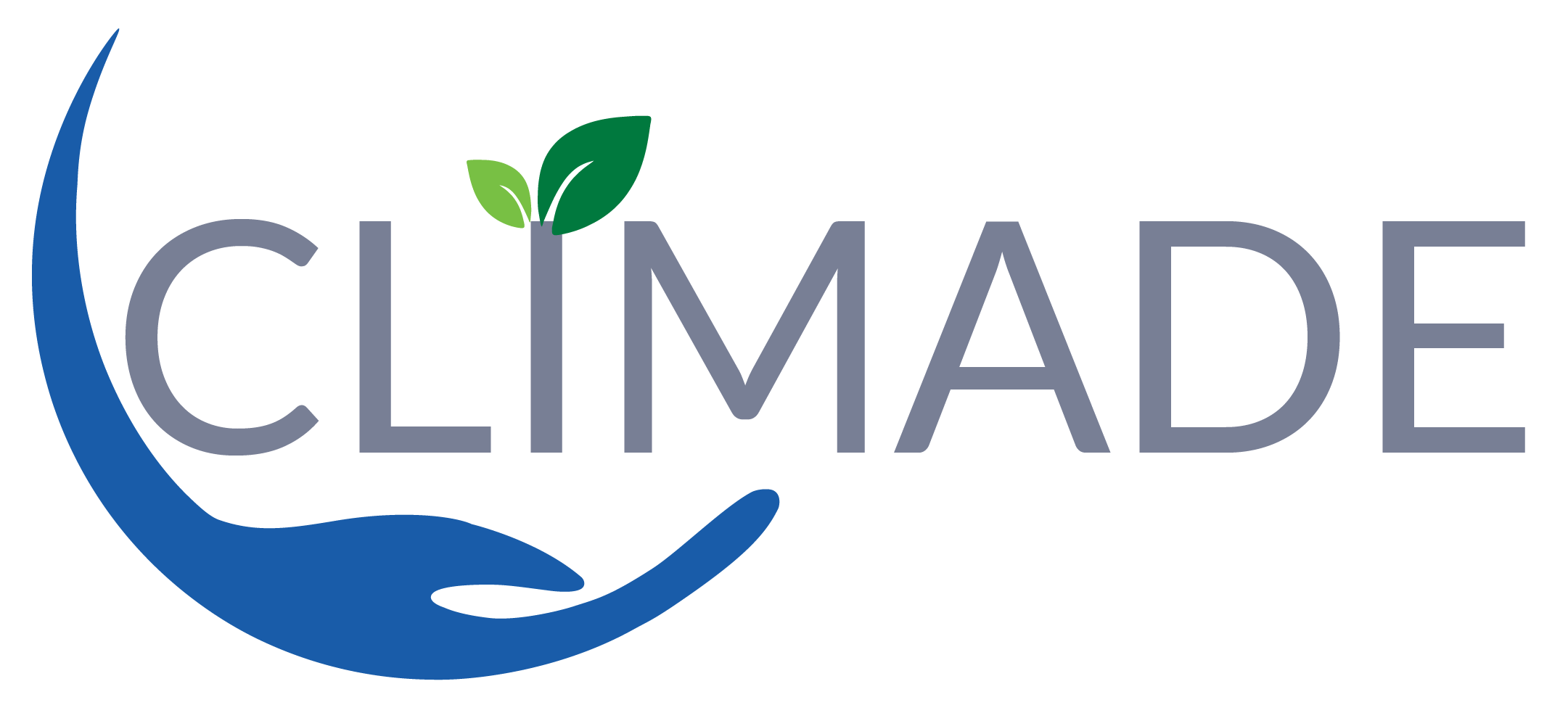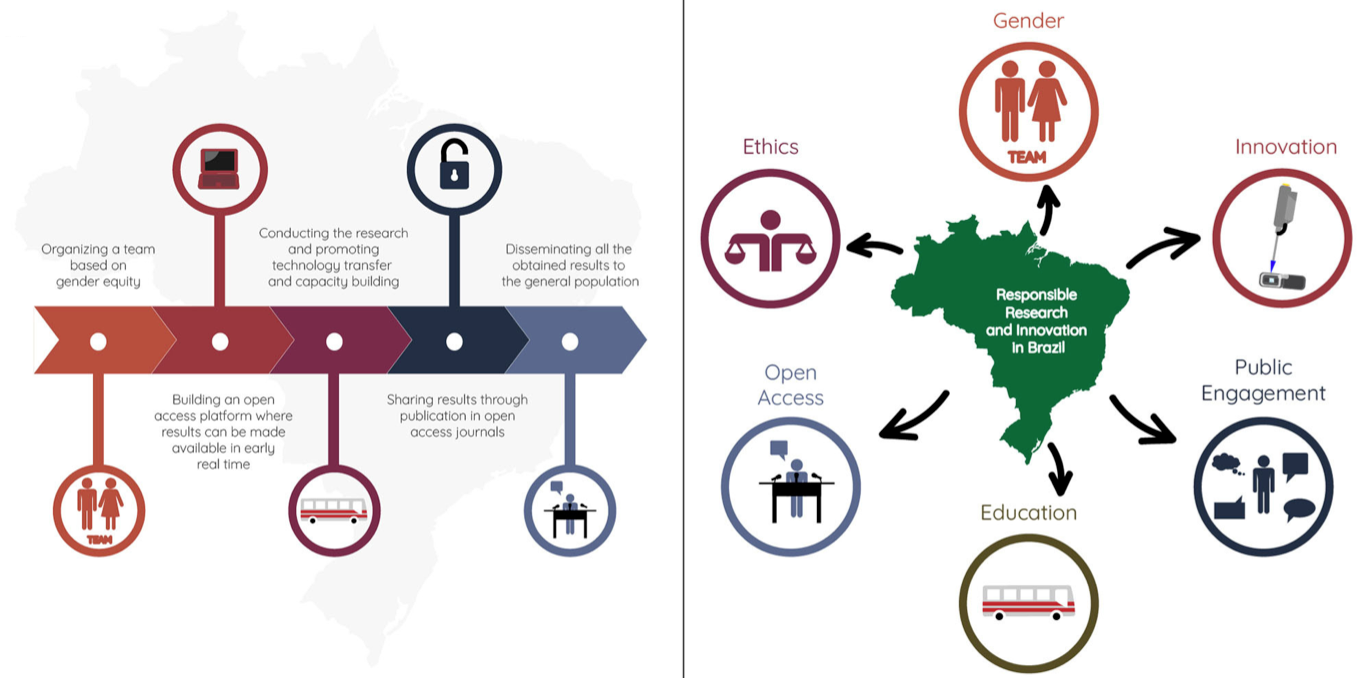our Project
THE AMERICAS

For CLIMADE Americas, the overarching vision is to create a Pan-American consortium to generate knowledge, develop localized tools and inform public health action for early warning and timely/targeted response to pathogens amplified by climate change. A key objective will be to fill critical knowledge gaps and blind spots of disease transmission predicted to pose increased threats in the future.
The initial activities in CLIMADE-Americas will be used as leverage to apply for further funding to expand the CLIMADE consortium and to ensure sustainability of the initiative. Importantly, the analysis of the data for CLIMADE Americas will be supported by partners in Latin America as well as in the U.S.A and Canada. The initial aims for CLIMADE-Americas are to:
Aim 1. Build a pan-American coalition to assess arbovirus susceptibility and transmission
Leveraging the PAHO network and the NIH funded program UWARD at the University of Washington , regular meetings with pan-American scientists and country-level public health officials will be held to better understand previous epidemics as well as to understand the state of pathogen surveillance in the Americas. A systemic review of published and unpublished literature on the landscape of arboviruses in Americas will be conducted to close the gap on epidemics caused by arboviruses across the continent. A detailed spatio-temporal risk map of historical and current arboviral presence and epidemic occurrences in the Americas will be created to establish the level of endemicity across the continent in contrast to risk of importations from other high incidence areas of the world. A large body of publication in Latin America already has been produced for CLIMADE scientists for the extensive Arboviral epidemics (i.e. Zika, Dengue, Chikungunya and Yellow Fever Virus).
Aim 2. Accelerate representation of climate amplified pathogen genomes by using the genomics network of PAHO and FioCruz Foundation in Brazil
The FioCruz Foundation in collaboration with the Minister of Health in Brazil and the Pan American Health Organization (PAHO) have already expanded arboviral sequencing to dozens of laboratories in Latin America. In the same manner, the specialized genomics facility of FioCruz in Brazil will support Pan-American Countries. Increasing the coverage of genomic sequencing for climate amplified pathogens is critical to fill in the knowledge gaps with regards to prevalence, transmission dynamics, evolutionary history, and outbreak characterization of epidemics in African and Latin American countries, and to inform interventions taken by public health stakeholders. . Standardized protocols for sample collection, storage, processing, and sequencing for specific pathogens will be shared with ministries of health and made publicly available through websites such as protocols.io. The program in Brazil will be expanded in Latin America, using a responsible research and innovation (RRI) framework, that includes equity, capacity building and public engagement.
Aim 3: Establish sustainable capacity and processes for pathogen genomics in the Americas
CLIMADE ACTIVITIES IN THE AMERICAS
Dengue Fever Surveillance in Mato Grosso do Sul: insights from genomic analysis and implications for Public Health Strategies
Collaborators: Larissa Domingues Castilho de Arruda, Marta Giovanetti, Vagner Fonseca, Marina Castilhos Souza Umaki Zardin, Gislene Garcia de Castro Lichs, Silvia Asato, Ana Olivia Pascoto
Increased interregional virus exchange and nucleotide diversity outline the expansion of chikungunya virus in Brazil
Collaborators: Joilson Xavier, Luiz Carlos Junior Alcantara, Vagner Fonseca, Mauricio Lima, Emerson Castro, Hegger Fritsch, Carla Oliveira, Natalia Guimarães, Talita Adelino, Mariane Evaristo, Evandra S.
Genomic and eco-epidemiological investigations in Uruguay reveal local Chikungunya virus transmission dynamics during its expansion across the Americas in 2023.
Collaborators: Analía Burgueño, Marta Giovanetti, Vagner Fonseca, Noelia Morel, Mauricio Lima, Emerson Castro, Natália R. Guimarães, Felipe C. M. Iani, Victoria Bormida, Maria Noel Cortinas,
Genomics-based timely detection of Dengue Virus type I genotypes I and V in Uruguay
Collaborators: Noelia Morel, Marta Giovanetti, Vagner Fonseca, Analía Burgueño, Mauricio Lima, Emerson Castro, Natália R. Guimarães, Felipe C. M. Iani, Victoria Bormida, Maria Noel Cortinas,
Unveiling Paraguay’s Monkeypox Epidemic: Genomic Insights and Response Strategies
Collaborators: Cynthia Vazquez, Vagner Fonseca, Andrea Gomez de la Fuente, Sandra Gonzalez, Fatima Fleitas, Mauricio Lima, Natália R. Guimarães, Felipe C. M. Iani, Analia Rojas,
Retrospective spatio-temporal dynamics of Dengue virus 1, 2 and 4 in Paraguay.
Collaborators: Cynthia Vazquez, Luiz Carlos Junior Alcantara, Vagner Fonseca, Mauricio Lima, Joilson Xavier, Talita Adelino, Hegger Fritsch, Emerson Castro, Carla de Oliveira, Gabriel Schuab, Alex
Rapid epidemic expansion of chikungunya virus-ECSA lineage in Paraguay
Collaborators: Marta Giovanetti, Cynthia Vazquez, Mauricio Lima, Emerson Castro, Analia Rojas, Andrea Gomez de la Fuente, Carolina Aquino, Cesar Cantero, Fatima Fleitas, Juan Torales, Julio
Historical climate-stress on dengue virus transmission potential across the globe
Taishi Nakase (USA), Uri Obolski (Israel), Marta Giovanetti (Italy), José Lourenço (Portugal), Tulio de Oliveira (South Africa) Recently we generated and made available a large

Genomic and eco-epidemiological investigations in Uruguay reveal local Chikungunya virus transmission dynamics during its expansion across the Americas in 2023
Authors: Analía Burgueño, Marta Giovanetti, Vagner Fonseca, Noelia Morel, Mauricio Lima, Emerson Castro, Natália R. Guimarães, Felipe C. M. Iani, Victoria Bormida, Maria Noel Cortinas, Viviana Ramas, Leticia Coppola, Ana I. Bento, Leticia Franco, Jairo Mendez Rico, José Lourenço, Luiz Carlos Junior Alcantara, Hector Chiparelli. Journal: medRxiv, doi: https://doi.org/10.1101/2023.08.17.23294156 Abstract: Uruguay experienced its first Chikungunya virus outbreak in 2023, resulting in
Description
initial Project
Description
Size : 10,000 genomes
Location : The Americas (all 55 member states)
Principal Investigators : Prof. Luiz Carlos Alcantara (Brazil), Prof. Wes Van Voorhis (U.S.A)
Project start : 2023 January
Project finish : 2024 August
Value : $9m (funded by NIH CREID network and US CDC)
the result
OUTCOMES
- Short-term – closing the critical knowledge gaps in arbovirus genomic epidemiology and opening up sampling pipelines to identify hotspots and inform the resource allocation, countermeasures, and policy decisions of public health institutes and ministries of health.
- Medium-term – engaging in dialogue with ministries of health around the report produced from extensive review of arbovirus-related research activities in the Americas and climate-related disease forecasting activities prior to COP28, as well as refining and optimizing processes for sampling and translating science to public health action.
- Long-term – creating sustainable capacity to identify and monitor pathogens in real time by training personnel from national public health institutes to sequence arboviruses.
Let’s Get in Touch
Contact details
E-mails: luiz.alcantara@ioc.fiocruz.br, WVanVoorhis@medicine.washington.edu
Addresses: FioCruz Foundation, Rio de Janeiro, Brazil. University of Washington, Seattle, USA.
Opening hours:
Monday — Friday: 8:00 – 18:00
Saturday — Sunday: Closed

